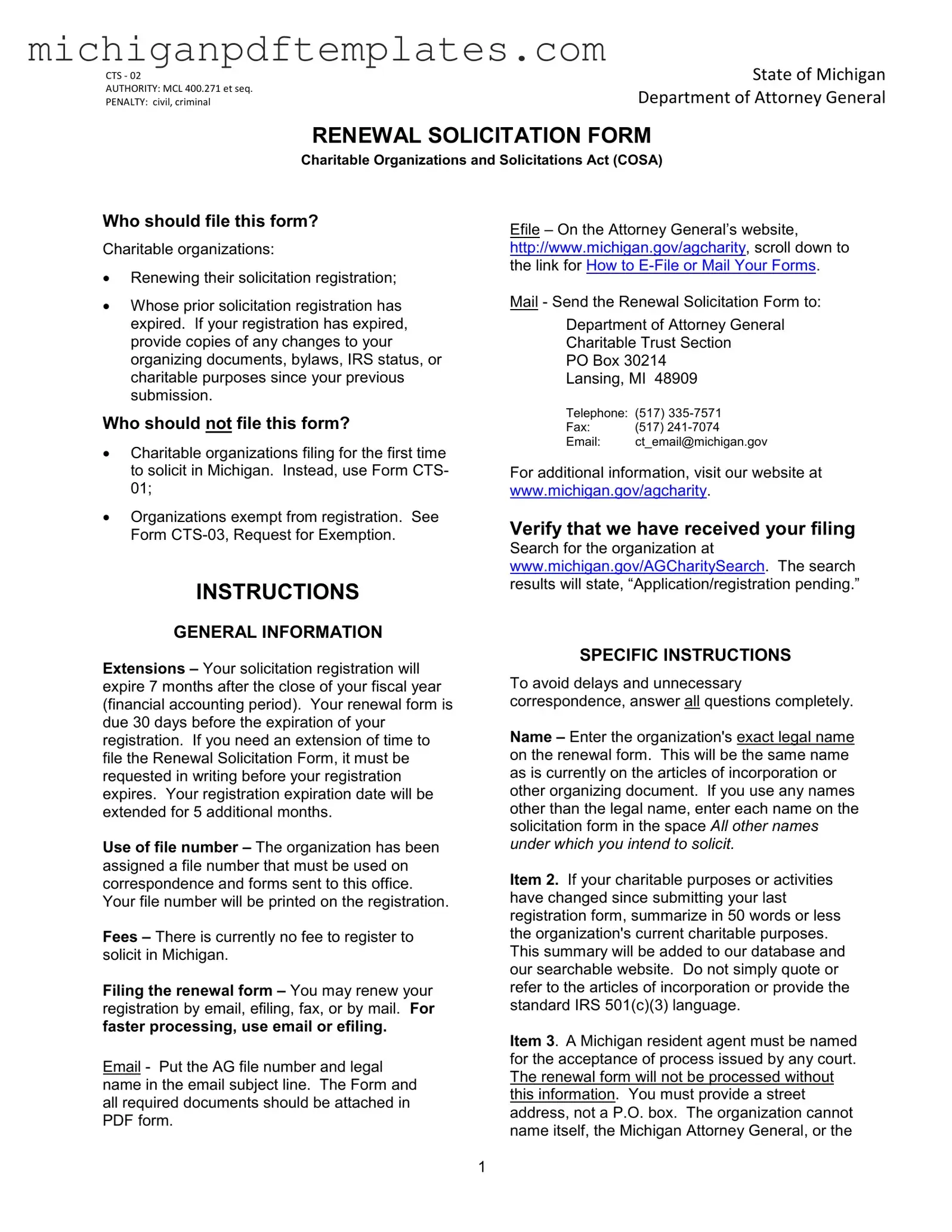Fill in Your Michigan Cts 02 Form
The Michigan CTS-02 form is a Renewal Solicitation Form required for charitable organizations seeking to renew their solicitation registration under the Charitable Organizations and Solicitations Act. This form is essential for organizations whose previous registration has expired, ensuring compliance with state regulations. If you need to renew your registration, fill out the form by clicking the button below.
Get Your Form Now

Fill in Your Michigan Cts 02 Form
Get Your Form Now

Get Your Form Now
or
▼ PDF Form
Finish this form quickly and move on
Fill in and complete Michigan Cts 02 online quickly.